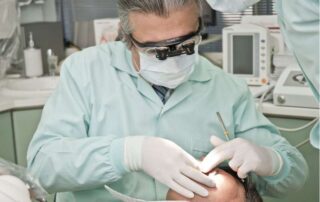Oral health professionals promote ‘value of having a dentist on the cancer care team’
Source: www.healio.com Author: Jennifer Byrne When planning their next steps after a cancer diagnosis, most patients don’t put a trip to the dentist at the top of their to-do list. “When patients are diagnosed with cancer, they just want to put out the fire; they want to address the cancer,” Dalal Alhajji, DMD, MSD, clinical instructor of oral and maxillofacial pathology, radiology and medicine at NYU College of Dentistry, said in an interview with Healio. “That’s when I say, ‘the reason you need to see a dentist is, we want to put out another potential fire — one you might not know about yet.” Alhajji and her colleagues at NYU College of Dentistry are part of a small but growing movement among oral health professionals seeking to close the gap between medical and dental care for patients with cancer. They see dentists as a vital component of any multidisciplinary oncology care team, offering infection treatment, protection of teeth during head and neck radiation treatments, and quality-of-life care for issues such as dry mouth and mouth sores. “I’ve been lucky — the oncologists I work with have been great about referring patients to me because they see the impact it has,” Alhajji said. “They see the value of having a dentist on the cancer care team.” Addressing preventable issues There are several reasons for a patient with cancer to see a dentist prior to initiating cancer treatment, but patients with head and neck cancers and those slated to undergo bone marrow [...]

